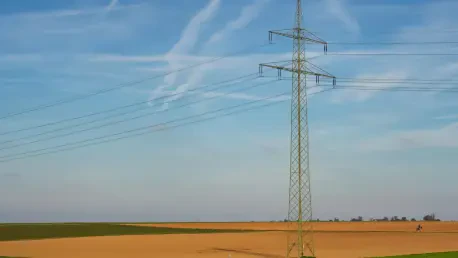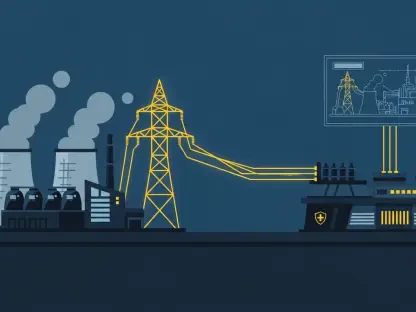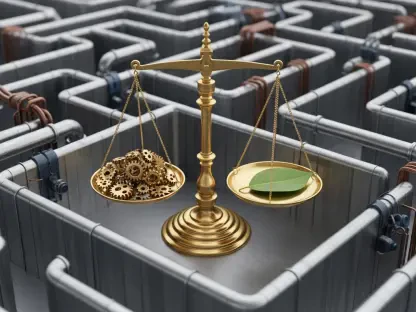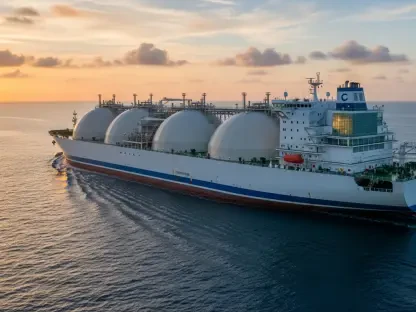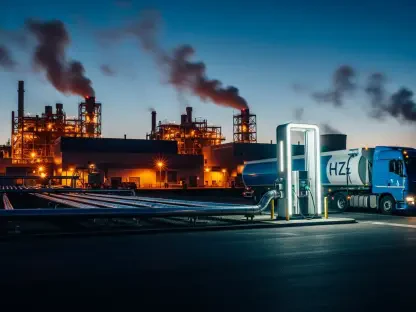What happens when a vital energy lifeline is suddenly severed in a region desperate for stability, and how will the affected nations navigate the fallout? In the heart of the Caribbean, a dramatic standoff unfolds as Venezuela abruptly suspends critical energy agreements with Trinidad and Tobago, halting projects that could have powered economies on both sides of the maritime border. This bold move, announced by President Nicolas Maduro on October 27, has ignited tensions and left a cloud of uncertainty over the Dragon natural gas field, a project once hailed as a beacon of regional cooperation.
The significance of this decision cannot be overstated. With the Dragon field holding an estimated 4.2 trillion cubic feet of reserves, it represented a crucial opportunity for Trinidad to replenish its dwindling gas supplies and for Venezuela to revive its sanctioned energy sector. Beyond economics, this suspension signals a deepening geopolitical rift, as accusations of foreign interference and shifting alliances threaten to destabilize an already fragile partnership. The fallout could reshape energy security and diplomatic ties across the Caribbean for years to come.
A Partnership Unraveled
The roots of this crisis lie in a once-promising collaboration between two neighboring nations. For years, Venezuela and Trinidad and Tobago worked hand in hand on energy projects, with the Dragon field standing as a flagship endeavor. Licensed recently by the U.S. for companies like Shell and the National Gas Company (NGC) of Trinidad, the project was poised to deliver much-needed resources to fuel industrial growth.
However, the harmony shattered when Maduro, citing concerns over national sovereignty, pulled the plug. His administration, backed by the Venezuelan oil ministry and state-run PDVSA, framed the suspension as a necessary defense against external threats. This drastic step has not only stalled immediate plans but also cast doubt on the viability of future cross-border initiatives in a region heavily reliant on shared resources.
Geopolitical Sparks Behind the Shutdown
At the core of this rupture are clashing political visions. Maduro has openly criticized Trinidad’s new Prime Minister, Kamla Persad-Bissessar, for what he perceives as a dangerous alignment with U.S. interests. Pointing to events like the docking of a U.S. warship in Trinidad, he accused the island nation of becoming a pawn in Washington’s agenda against Caracas.
This marks a stark contrast to the approach of Trinidad’s former leader, Keith Rowley, who prioritized energy diplomacy despite U.S. sanctions on Venezuela. Under Rowley, negotiations moved forward with a focus on mutual benefit. Now, with Persad-Bissessar at the helm since earlier this year, the shift toward a more independent and U.S.-friendly stance has inflamed tensions, turning a cooperative venture into a geopolitical flashpoint.
Economic Tremors Felt on Both Shores
The immediate economic impact of the suspension is profound for Trinidad, which had banked on Venezuelan gas to sustain its energy-dependent economy. The Dragon field was seen as a lifeline to bridge the gap left by declining domestic reserves. While Persad-Bissessar insists that alternative strategies are in place, industry experts warn that pivoting to new sources could take years and come at a steep cost.
For Venezuela, the decision risks further isolation. Already grappling with internal crises and international sanctions, the energy sector—once a cornerstone of its economy—faces additional strain. Projects like the Manatee gas field, involving global giants Shell and BP, hang in a precarious balance, despite prior approvals for independent operations on Trinidad’s side of the border.
The ripple effects extend beyond borders, unsettling international stakeholders. Companies invested in the region now face delays and financial uncertainty, with one Shell executive anonymously lamenting the suspension as “a gut punch to years of hard-won progress.” The economic stakes underscore how deeply intertwined the fortunes of these nations remain, despite the growing divide.
Voices from the Frontlines
Maduro’s rhetoric has been unflinching, with the Venezuelan leader declaring, “No foreign power will dictate the terms of our resources or compromise our independence.” His words reflect a broader narrative of defiance against perceived threats, positioning the suspension as a stand for national pride over economic gain.
On the other side, Persad-Bissessar has taken a pragmatic tone, emphasizing Trinidad’s resilience. “Venezuelan gas is not our only path forward,” she stated, highlighting plans to diversify the economy through renewable energy and other sectors. Her confidence, however, is met with skepticism by local analysts who note that such transitions are neither swift nor guaranteed.
Energy experts paint a grim picture of mutual loss. A Caribbean-based consultant warned that Venezuela’s move could deter future partners, while Trinidad risks short-term energy shortages that could hamper industrial output. The frustration is palpable among industry insiders at NGC, with one describing the stalled Dragon project as “a missed opportunity of historic proportions.”
Charting a Path Through the Storm
Finding a resolution demands careful navigation by both nations. Trinidad could accelerate investments in alternative energy sources, such as solar and wind, to reduce reliance on Venezuelan gas. Simultaneously, maintaining diplomatic backchannels might help de-escalate the current standoff without sacrificing strategic priorities.
Venezuela, meanwhile, could benefit from isolating specific projects like Manatee from broader disputes, allowing limited cooperation to persist. Engaging regional bodies like CARICOM as mediators might also provide a neutral platform to rebuild trust, ensuring that political disagreements don’t permanently derail economic ties.
For international players like Shell and BP, a dual approach of lobbying both governments while exploring parallel ventures elsewhere in the region could mitigate risks. The path forward hinges on dialogue and compromise, with the potential to salvage at least fragments of a partnership that once promised so much for the Caribbean’s energy landscape.
Reflecting on a Fractured Bond
Looking back, the suspension of energy deals between Venezuela and Trinidad marked a turning point, exposing how swiftly geopolitical mistrust could unravel years of collaboration. The halted Dragon project stood as a stark reminder of lost potential, while accusations and counterclaims echoed louder than the promise of shared prosperity.
Yet, the story didn’t end there. Both nations faced a choice in the aftermath: to entrench divisions or seek pragmatic solutions. For Trinidad, exploring new energy frontiers became a priority, while Venezuela weighed the cost of isolation against the benefits of selective engagement. International stakeholders, too, adapted by diversifying their focus, ensuring they weren’t caught off guard by future disruptions. The Caribbean’s energy future remained uncertain, but the lessons of this rift offered a blueprint for resilience—urging all involved to prioritize dialogue over discord in the years that followed.
